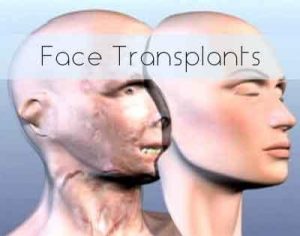- Home
- Editorial
- News
- Practice Guidelines
- Anesthesiology Guidelines
- Cancer Guidelines
- Cardiac Sciences Guidelines
- Critical Care Guidelines
- Dentistry Guidelines
- Dermatology Guidelines
- Diabetes and Endo Guidelines
- Diagnostics Guidelines
- ENT Guidelines
- Featured Practice Guidelines
- Gastroenterology Guidelines
- Geriatrics Guidelines
- Medicine Guidelines
- Nephrology Guidelines
- Neurosciences Guidelines
- Obs and Gynae Guidelines
- Ophthalmology Guidelines
- Orthopaedics Guidelines
- Paediatrics Guidelines
- Psychiatry Guidelines
- Pulmonology Guidelines
- Radiology Guidelines
- Surgery Guidelines
- Urology Guidelines
Should we keep doing face transplants?

There are few long-term studies of people who’ve had face transplants, and even the addition of another study of seven cases does not answer all questions about safety and efficacy of the procedure, say the authors of a new report.
“Ultimately, if one answers, ‘yes’ to the question, ‘Should we continue performing face transplants?’” then the “ethical requirements” for going forward include carefully determining which patients are likely to benefit and which are not, long-term monitoring to track what happens, and strict oversight by the hospital’s institutional review board, the authors wrote in The Lancet.
There have been fewer than 40 face transplants since 2005. In the new study, the French research team followed outcomes for seven transplant patients who had the surgery at their hospital between 2000 and 2009. Four had self-inflicted gunshot wounds to the face, one was burned and two had an inherited facial tumor condition.
A study of seven people is relatively large when you consider that so few transplants have ever been done, lead author Laurent Lantieri of the Hopital Européen Georges Pompidou in Paris told Reuters Health by phone.
Over several years of follow-up, two patients died, one due to transplant failure and infection and one due to suicide more than three years after the transplant.
As with other organ and tissue transplants, recipients’ immune systems periodically rejected the new tissue, and the powerful immunosuppressive drugs that lower the risk of rejection unfortunately increased the high risk of metabolic side effects.
The surviving patients continued to take high-dose steroids to combat rejection episodes years after surgery. None developed diabetes, which is a common side effect of steroids, but three developed high blood pressure and all had noticeably reduced kidney function.
Not all recipients experienced the same improvement in quality of life or social integration. Improvements in those areas seemed to depend on patients’ quality of life before the transplant, and whether or not they had serious psychiatric conditions before surgery.
Mental health is an important predictor of the success or failure of a face transplant, and recipients should be carefully selected and have mental health and social work professionals in their multidisciplinary transplant teams, according to Dr. J. Rodrigo Diaz-Siso and Dr. Eduardo D. Rodriguez of New York University Langone Medical Center, one of the few facilities in the world where face transplants are performed. Diaz-Siso and Rodriguez coauthored a comment along with the new research in The Lancet.
Also critically important to the success of a face transplant is so-called HLA matching, that is, making sure the donor and the recipient tissues are immunologically compatible.
“A face transplant requires lifelong adherence to a pharmacological regimen of immunosuppressants,” Rodriguez told Reuters Health by email. “That is why it is critically important to select patients who are committed to compliance, have a support system to hold them accountable, and understand the potential side effects of these medications.”
The authors of the study and of the comment agree that what long-term data we have so far does not yet answer the question, “Should we continue performing these procedures?”
“Face transplantation is not Face/Off,” Lantieri said, referring to a 1990s science fiction movie. “These patients have no other options and face incredible risks just to improve their basic quality of life, unlike what has been shown in the media.”
“Face transplants are appropriate for a select group of individuals, particularly for those for whom conventional plastic surgery options have been exhausted and function has not yet been restored,” Rodriguez said. “These individuals must also understand the risks of these types of these procedures as well as the long term effects of immuno suppression medication.”

Disclaimer: This site is primarily intended for healthcare professionals. Any content/information on this website does not replace the advice of medical and/or health professionals and should not be construed as medical/diagnostic advice/endorsement or prescription. Use of this site is subject to our terms of use, privacy policy, advertisement policy. © 2020 Minerva Medical Treatment Pvt Ltd